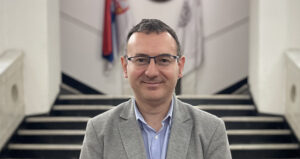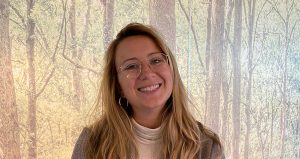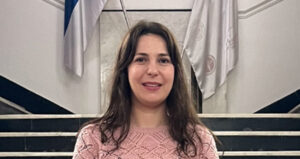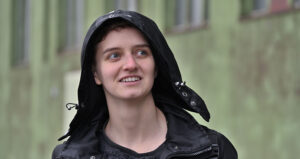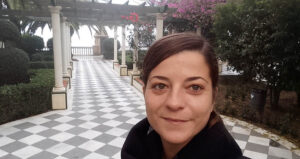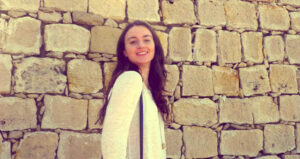Catarina: “We can come up with innovative solutions for wicked problems”
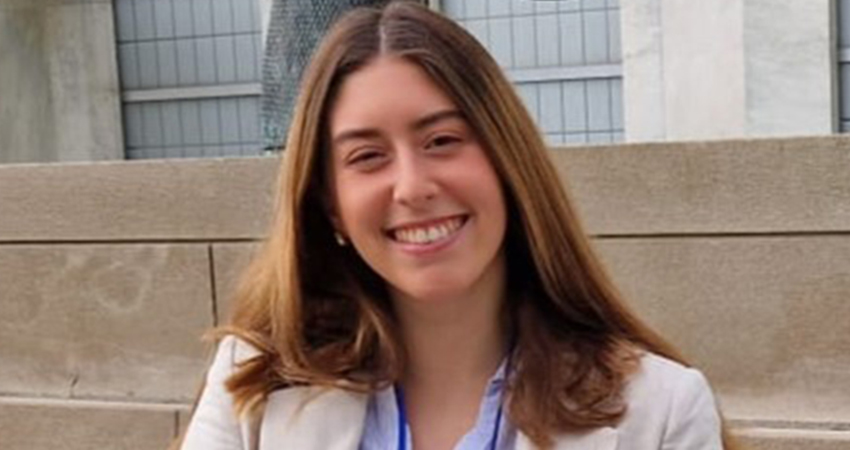
- 21 September 2022
-
Editorial Team
Share article:
Catarina Baptista participated in the Water-Smart Bootcamp of the European Junior Water Programme (EJWP) last June in Brussels. The event was part of Water Innovation Europe 2023 organised by Water Europe. She learned there that young professionals can be of great value and shares her experiences with Water News Europe.
What is your current work position? And where are you from originally?
“I’m originally from Lisbon, Portugal, and currently work at VITO, the Flemish Research and Technology Organization in Belgium. I am a research engineer for water treatment technologies with focus on finding alternative water treatments, such as biological processes and nature-based solutions. I participate mainly in the set up and execution of European projects, and it is often a complex challenge working for solutions with meaningful impact and applications. I believe that cooperation is the best path in this direction.”
How did you become interested in the EJWP Bootcamp at Water Innovation Europe?
“As someone that has a technical background, I believe that working on soft skills is your most-valuable asset: ultimately, everyone can read books but who you are as a person and the kind of energy you put in your work is, for me, what is going to make the difference. So, I’m always looking for opportunities to challenge myself and learn more, especially as a young professional. When I found I could join a crash-course with EJWP (plus on top of that, participate actively in Water Innovation Europe), it was impossible to say no!”
What were your takeaways from the Bootcamp?
“The most memorable thing for me was the energy we were able to bring to the room. The sense of empowerment was vivid: it was clear that as young professionals we all go through the same challenges, we all have frustrations, but we do also have the tools and the ambition to move forward. Thanks to Naomi’s inspiring insights, I learned that to work in multidisciplinary teams, we need to step out of the box. But it’s not only about applying this for one brainstorming session, we actually need to try to bring this spirit to our everyday work. In a certain way, this is a leverage that young professionals have: everything is relatively new to us, so we can actually dare and question what is being done, and come up with innovative solutions for wicked problems.”
Do you have comments on the other participants in the Bootcamp?
“We were all part of the water sector, but with complementary views. I had a background in engineering. Other participants were coming from the business and economics background, so the perception of the value of water takes a completely different meaning; whereas, others came from the policy perspective, in which then we start debating impact of solutions in a totally different scale. It was an enriching conversation, also from a multicultural point of view. From working in European projects myself, I like to see the value of the human capital in that sense.”
What is a water/environment/climate topic that you see as increasingly important now and in the future? What is there to do about this?
“As part of my work, I look into alternative water treatment technologies, for instance Nature-based Solutions. If I would try to picture what the future looks like, my dream would be to have green and blue cities with trees, ponds, rivers flowing through, and people gathering around. However, one of the biggest barriers to this future scenario is that our current way of living does not allow it without a complete change in the system. Policies would have to change, investment funds would have to be restructured, infrastructure would have to be completely different. And that is where, as a young professional, I would like to step in; we can always start with systemic change one step at a time.”
What else would you like to say about your work and future resilience?
“I believe one of the main challenges we currently face is that innovation in the water sector is happening so fast that it has become a world of competition instead of collaboration, and this is something I really believe it’s needed to fight against.”
What and where did you study?
“I studied Biological Engineering at the University of Lisbon, and then finished my Masters in the field of Environmental Technology with a 6-month ERASMUS internship at the University of Antwerp, where I found my true passion for the world of water.”

